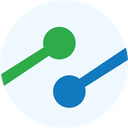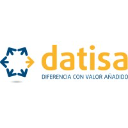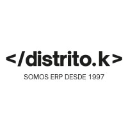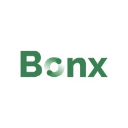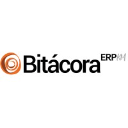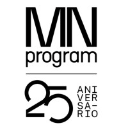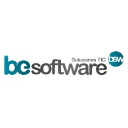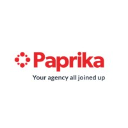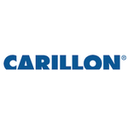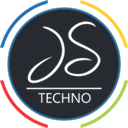Enterprise Resource Planning (ERP) software: purchase guide
What is ERP in simple terms?
Definition
Enterprise Resource Planning (ERP) Software streamline business processes, improve the traceability of information, manage references (products, articles, stocks) and third parties (suppliers and subcontractors). The fundamental difference between an Enterprise Resource Planning software package and a management software is the sharing of a single database for all business modules. The centralization of data and its exploitation via the various modules make it possible to manage the various activities of the company (stocks, suppliers, invoicing, customer relations, accounting, etc.).
To manage the information system (IS) of an organization seamlessly and consistently, ERP software remains the ideal tool.
How do you use ERP software?
Traditional ERP solutions rely on a logic of managing products and articles. They are therefore used by companies selling goods and less used by service SMEs and smaller companies. These primarily want to centralize their information (data integrity) and simplify their IS in order to save resources. An ERP consists of modules that fulfill a "business" mission as would conventional software:
- Business Management
- Procurement Management
- Production and Supply Chain Management
- Project Management
- Customer Relationship Management
- Inventory Management
- Supply Management
- Payroll and Human Resources Management
- Accounting Management and Financial Management
These modules work in an integrated way (we pass from one module to another by a tab) and rely on one and the same centralized database. An ERP Software needs to be configured in-depth to be adapted to the processes and specificities of the user company which is why they use integrators who will do this work of deployment and optimization with them.
Since 2005, new, more agile ERP systems have been developed under the name of "management software". They offer the following advantages:
- Less in initial investment
- Less technical effort for the benefit of the functionality
- Significant increase on ROI
- Better scalability
- Better ergonomics and collaborative functions through the Cloud
Modules and Features of ERP Software
The ERP tool contains functional modules that use the same data in a single centralized database. It is a set in which all the parts work harmoniously with each other. The information is therefore unique (coherent ERP information system) and modular applications of ERP interlock like Lego blocks.
The ERP architectures distinguish the finance module, the logistics module and the e-commerce module. As for the finance module, it is divided into 5 sub-modules and carries out management control and forecasts on all of the company's directives. Also, it manages third party, analytical and general accounting. It also controls investment management, human resources, travel expenses and everything related to payroll management and working time. To use this module, you need to have a thorough knowledge of accounting.
The logistics module, which is more sought after by companies, is used for sales/purchasing management, especially inventory management, which is a costly process for companies. If this module also makes it possible to manage sales orders and deliveries, its greatest asset must of course be its optimization of the workflow process. The precise management of quality controls and invoices are all assets of the ERP software that coordinates and triggers corrective measures. As for the e-commerce module, it allows you to sell online. Officially, it is considered as a Customer Relationship Management (CRM) software. This module allows you to perform the required statistics on any database. A reporting tool is associated with this module. Just what you need, because in the end the e-commerce module is just as well used to make marketing offers as it is for e-mailing.
What Kind of Companies Use ERP Software?
Given the importance of "e-business" in all companies, the use of tools based on information and communication technologies remains essential. For this reason, ERP is the most widely used software package to integrate all the company's functions. The tool has the particularity of building IT applications around the information system in accordance with each function of the company in a modular way. Admittedly, not all modules are dependent on each other but nevertheless share a single and common database. An ERP solution is also the use of a Workflow engine. With the help of the system, when data is recorded in the ERP information system, it is simultaneously propagated in the appropriate modules while respecting strict programming. Generally combined with an oracle database, ERPs are often client/server-based. They are well suited for the PowerPoint and Excel office pack and the software is widely used for data import/export.
Why Use an Enterprise Resource Planning Software?
The objective of the implementation of ERP (Enterprise Resource Planning) software is to automate your company's processes: purchasing, sales management, production, payroll, etc. This management software aims to centralize all your company's information in a single database. In concrete terms, a sales representative who registers a sale in his online application will be integrated into ERP. Automatically, this sale will impact inventory management, sales journal and accounting. Be more efficient in the management of your processes and your company's data!
Pros
The new generation of ERP in SaaS mode knows how to adapt to the needs of SMEs through the following functions:
- Ergonomic environments accessible from a mobile terminal
- Collaborative functions (sharing of documents and knowledge)
- Valuation of data by marketing and commercial functions
- Objective 0% integration versus 100% configuration
- Never re-enter data (they are shared by all modules)
Cons
The ERP limits for SMEs are:
- Structure too rigid
- Setting up too complex and expensive
- Under-valuation of data
- How to choose an ERP?
- Criteria
- The integration effort
- Scalability
- Ergonomics
- The relationship with the publisher and the integrator
Popular ERPs for Startups, Small Businesses and SMEs
The traditional ERP market is trusted by SAP, Oracle and PeopleSoft, which together account for half of the market share.
Here are some popular ERP software: Sage 100 cloud, Workday ERP, Rootstock Cloud ERP, Microsoft Dynamics NAV

